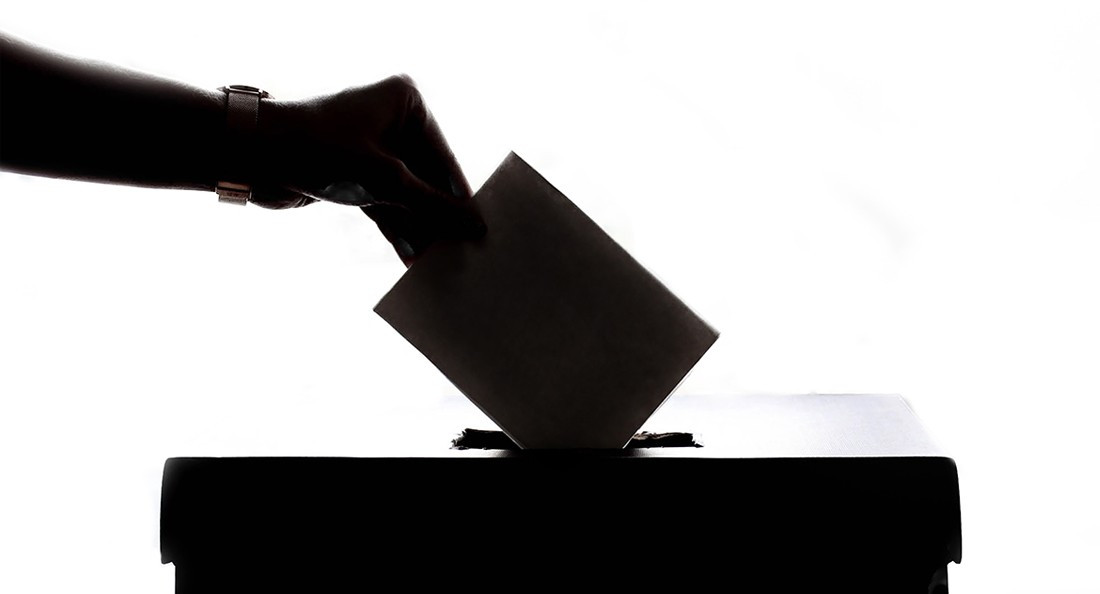Have a say and fill a ballot
Strategies for increasing turnout at UWSA elections
The University of Winnipeg Students’ Association (UWSA) 2019 general election was held from March 4 to 6. The election saw favourable results for the UWSA Empower Slate, who were voted into the executive team positions. This year’s election also showed a significantly lower voter turnout than past years’ general elections.
Several other candidates were elected to the positions they campaigned for, but only the position of business and economics director was contested between two candidates.
The 2018 general election had a 6.8 per cent voter turnout. The 2017 general election, which saw several contested positions, had a 13.8 per cent voter turnout. This year showed significantly lower numbers, according to the unofficial voting results.
Bronwyn MacLean, a student at the University of Winnipeg (U of W) was involved in collecting and counting votes this year. MacLean worked at one of five voting locations.
“I was in the Buhler Centre. I want to say we got less than 10 votes a day,” she says.
MacLean says the polling station in Riddell Hall was more successful at bringing in voters.
Even though the positions to be filled were broadly not contested, students have the option of voting yes or no for each candidate. MacLean says most people she spoke to were unaware that this was an option.
Additionally, many ballots were spoiled, because they were filled out incorrectly.
“You have to check with an ‘x,’ and a lot of people didn’t know that,” MacLean says. “There should have been more clear communication about filling in the ballot correctly, because a lot of people that did come out and vote had their ballots thrown out.”
MacLean says it was disappointing to see how few people voted.
“It literally takes under a minute. I wish more people would vote,” she says.
Janelle Gobin, a political science student at the U of W, has a strong belief in democracy and electing the people who will represent the student body.
“I think it’s important for every student to have a say and a vote, because we have the right to vote,” she says. “These people are representing us, and part of our tuition is going towards running the UWSA, so I feel like it’s our responsibility to have a say in this.”
Evan Krosney, another political science student at the U of W, says he felt an obligation to vote as this was the last election in which he could cast a ballot before he graduates.
“Part of the reason I was motivated was that I think it’s really incredible that we have such a diverse slate of really amazing candidates who are going to be able to bring a progressive vision to this university,” he says.
Morgan Brightnose, a member of Tataskweyak Cree Nation and the current UWSA executive president, says he has confidence in next year’s executive team, which is entirely made up of Women of Colour.
“The next executive team is the most qualified executive (team) the UWSA has ever had in terms of both professional and lived experience. Meagan Malcom, Natasha Reimer, Mahlet Cuff and Noelle Sagher are amazing people who will accomplish great things,” Brightnose says. “The student population and UWSA are very fortunate to have these four as executives.”
Brightnose says it’s hard to pin down one specific reason for the low voter turnout.
“For this election, we increased the election budget by 10 per cent, one of the biggest increases in our budget,” he says. “We’ve increased the election budget yet again (for the coming year), and we passed a motion to have online voting for the 2020 UWSA general election.”
Gobin says it’s difficult to get students to feel engaged with student elections.
“As someone who has been involved in student groups over the past few years, I think that the struggle for student groups and for the student government is getting students engaged,” she says. “That’s just the perennial struggle of trying to get people involved and trying to grow the base of people that are engaged and willing to go vote and spend more time on campus than just going to class and leaving.”
Gobin says the students who reach out to get information and get involved are the students who are already motivated to do so.
“I like the idea of trying to build bridges between students that wouldn’t necessarily consider themselves engaged or wouldn’t feel that natural inclination to seek out more information,” she says.
Krosney says he would wholeheartedly support any push to engage the larger student body with the political process, “whether that’s increased hours for polling stations, more locations or even in-class presentations so that folks around the university know why it’s important to vote.”
Gobin and Krosney say they also voted because of the referendum that was included on the ballot, which asked whether students supported increasing the Student Refugee Program student levy by $1.69.
Krosney says the small increase in tuition would build a more inclusive university that supports refugee students.
“This university, and really this city, represents an amazing place for all people no matter where you come from or what your background is, and I wanted us to continue that vision by making sure this referendum passes,” Krosney says. “I think overall, as a university, our values would definitely be on the same page as that referendum.”
Published in Volume 73, Number 24 of The Uniter (April 4, 2019)








